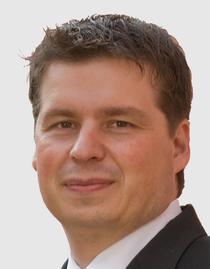Nov 14 2013
For his work on the control of complex molecules, Professor Jochen Küpper from the Hamburg Center for Free-Electron Laser Science (CFEL, DESY and the University of Hamburg) is granted two million euros by the European Research Council (ERC). The council supports Küpper’s project "Controlling the Motion of Complex Molecules and Particles" (COMOTION) through an ERC Consolidator Grant for five years starting in early 2014.
The aim of the project is to develop methods to control, e.g., to transport, to sort, and to align complex molecules like peptides and proteins, but also larger objects, such as virus particles or picoplankton.
 Prof. Jochen Küpper of the Center for Free-Electron Laser Science
Prof. Jochen Küpper of the Center for Free-Electron Laser Science
Novel light sources like free-electron lasers, generating bright X-ray flashes, allow to unravel structures of complex molecules, viruses and other objects from the nanocosm, and to film their chemical reactions. Still, handling of these samples is a challenge. Within Küpper’s project, scientists will, therefore, further develop sources to bring such molecules into the gas phase and to quick-freeze them. These molecules are then transported through pipes and funnels of laser-light and electric fields. Furthermore, they will develop techniques to sort molecules according to their structure and to align and orient them in space.
„Ultimately, the goal is to get a kind of conveyor belt for molecules to efficiently feed them into an experiment pre-sorted by structure, synchronized, and in the right direction,” says Küpper, head of a DESY research group at CFEL and professor at the University of Hamburg. Apart from structural analyses with free-electron lasers, such controlled molecule samples could also extend matter-wave experiments to investigate the limits of quantum-mechanical wave properties of particles, and the observation of ultrafast electron motion in molecules. One example is the transport of charge and energy along a molecule, for instance from the photo-excitated site of a light-harvesting complex to the reaction centre. “We mainly want to investigate and understand the ultra-fast steps of this energy transport,” says Küpper, “that is, how fast and in which form is the electron dispatched along the peptide chain.”
CFEL is a cooperation between DESY, the Max Planck Society and the University of Hamburg.
Research Group of Jochen Küpper: http://desy.cfel.de/cid/cmi